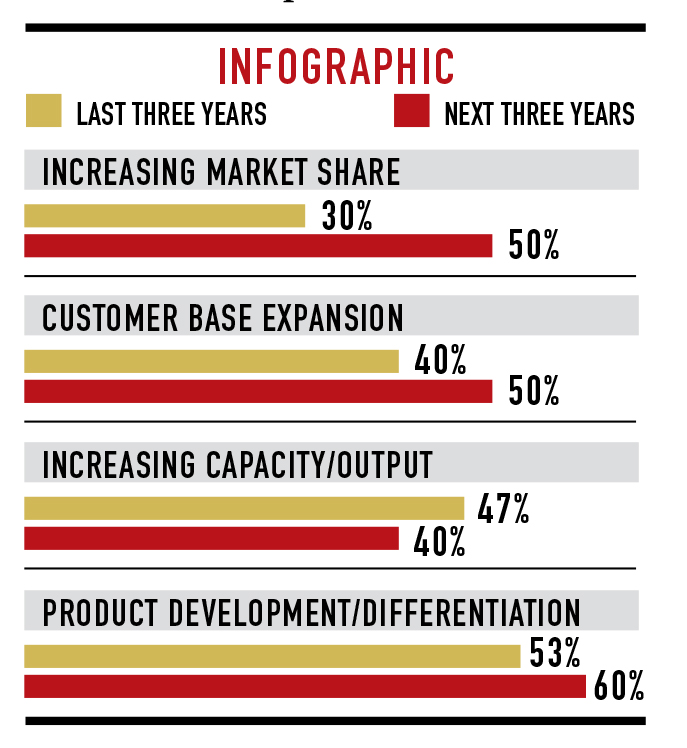Top 75 Global Challengers: The science of success

What is it that makes a business successful? Do family enterprises do better in certain sectors? And is investing in research and development more of a deciding factor in growth than launching a mergers and acquisitions spree? Answers to these questions can turn family businesses from corner shops into conglomerate, which is why the Campden Research team is testing some of these ideas in the Top 75 Global Challengers study – a fascinating new ranking and analysis of the fastest-growing family businesses around the world.
Understanding the science behind their success is hugely important for the family business community. One of the things we will be investigating in this project are the factors that drive business growth.
 A study that we conducted in 2015 into the world's 30 largest wholly-owned family businesses (a group with a combined revenue of $614 billion that we nicknamed “Titans”) helps us to formulate predictions as to what drivers we might observe.
A study that we conducted in 2015 into the world's 30 largest wholly-owned family businesses (a group with a combined revenue of $614 billion that we nicknamed “Titans”) helps us to formulate predictions as to what drivers we might observe.
Our first prediction is that product development among the dynamic companies will be a key factor for success.
In 2015, we compared the growth drivers of the Titans in the past with their growth strategies for the future (see our infographic). The results show that commercial imperatives around increasing market share and customer base expansion remain as important – indeed more important – in the future as in the past.
However, going forward, the Titans become focused less on increasing capacity/output and more on product development/differentiation. They prioritise 'better' products over 'more' products, although perhaps the 'more' products will inevitably flow from this. When comparing the future growth strategies of the smaller and larger Titans, we found that product development/differentiation was more important for smaller Titans than for the larger ones. These two findings together form the basis of our first prediction.
 Our second prediction is that faster-growing companies will concentrate on acquisitions to speed their growth.
Our second prediction is that faster-growing companies will concentrate on acquisitions to speed their growth.
We analysed the growth drivers of the Titans according to company revenue and saw that making acquisitions is more important to smaller Titans than their larger peers. This probably speaks to the greater ambition of smaller players who want to grow quickly, and to strategically increase market share. This may well be magnified among the fastest-growing family businesses, particularly if they are prepared to dilute equity or are indeed already well capitalised.
You'll be able to test the accuracy of the above predictions when we publish the Top 75 Global Challengers findings in early 2017. In the meantime, are there any super-star family businesses you know? I'd love to hear about them.






